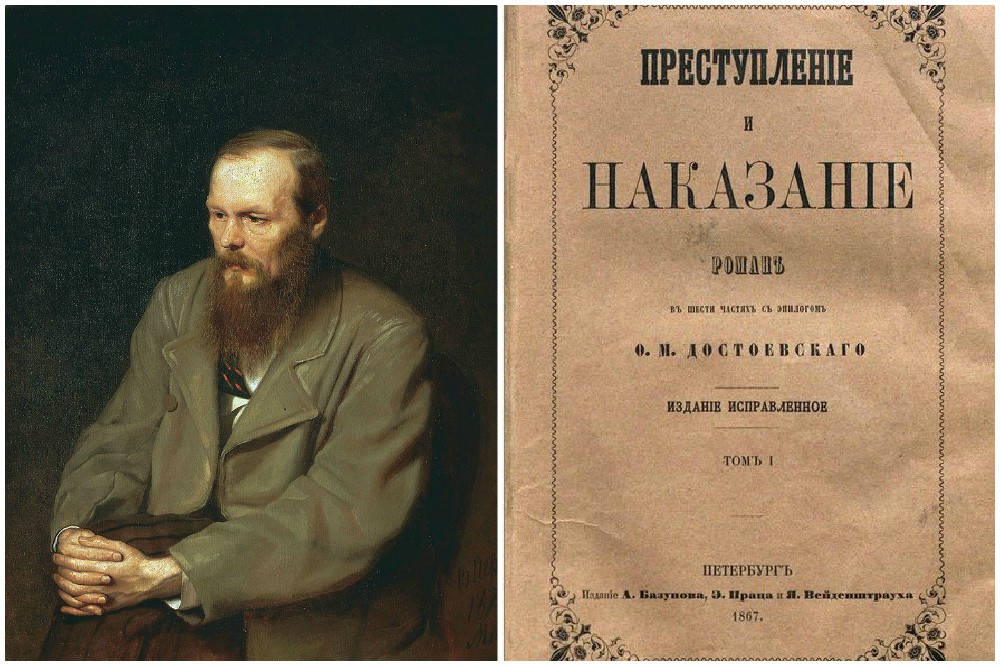
If you have ever read anything by Fyodor Dostoevsky, you know that the literary works of this existentialist Russian author of the 19th century are certainly not for ‘light reading’. ‘Crime and Punishment’ is probably his most famous novel and also one of the most difficult to read.
First published in 1866, the novel brought Dostoevsky world fame and is considered one of the greatest achievements in the literature to this day. It covers a number of existential topics and moral dilemmas, including the concepts of freedom, remorse, and ethical boundaries.
Dreams have a symbolic and very important meaning in ‘Crime and Punishment’. In the last chapter of the novel, Dostoevsky describes the protagonist’s dream about a plague that came from Asia and invaded Europe.
He dreamt that the whole world was condemned to a terrible new strange plague that had come to Europe from the depths of Asia. All were to be destroyed except a very few chosen. Some new sorts of microbes were attacking the bodies of men, but these microbes were endowed with intelligence and will.
Considering today’s global situation with the coronavirus pandemic, it looks terrifyingly prophetic, doesn’t it?
However, there is more. Obviously, a plague was just a metaphor to describe the phenomena that plagued the Russian society of the 19th century (excuse me for this wordplay). And yet, what Dostoevsky wrote is strikingly relevant to our society today.
But never had men considered themselves so intellectual and so completely in possession of the truth as these sufferers, never had they considered their decisions, their scientific conclusions, their moral convictions so infallible. […]
They did not know how to judge and could not agree what to consider evil and what good; they did not know whom to blame, whom to justify.
It’s true that we have never had so much knowledge in our possession as we do today. Not even mentioning the scientific advances, but only the Internet alone gives us limitless access to whole humanity’s knowledge at any given moment.
And yet, we have not become smarter or more open-minded, but sadly, quite the opposite is true. Shallowness and narrow-mindedness are cultivated and thriving in our society. Everyone considers themselves right and yet, everyone’s judgment is clouded by social conditioning, mass media propaganda, and cognitive biases.
A lack of critical thinking is what leads people to believe everything they are told and discourages them from drawing their own conclusions. As a result, they rarely question anything and can’t tell the right from the wrong.
Dostoevsky also covers the topic of war and its devastating consequences, emphasizing its brutality and pointlessness.
Men killed each other in a sort of senseless spite. They gathered together in armies against one another, but even on the march the armies would begin attacking each other, the ranks would be broken and the soldiers would fall on each other, stabbing and cutting, biting and devouring each other. […]
They accused one another, fought and killed each other. There were conflagrations and famine. All men and all things were involved in destruction.
Dostoevsky finishes the protagonist’s dream about the pandemic with this ambiguous statement:
The plague spread and moved further and further. Only a few men could be saved in the whole world. They were a pure chosen people, destined to found a new race and a new life, to renew and purify the earth, but no one had seen these men, no one had heard their words and their voices.
On the one hand, it sounds quite optimistic as humanity was able to get back on track, but we can’t neglect the fact that only a limited number of humans could survive the pandemic Dostoevsky described.
No, I don’t think so. In fact, most literary experts agree that Dostoevsky used the plague as a metaphor for Russian nihilism that was very widespread in society at that time and led many people to adopt radical ideas with fanatical devotion.
However, as a deep thinker who was able to penetrate into the very essence of human psychology, Dostoevsky described the phenomena that have no particular time or place and are universal for any society. Novels such as ‘Crime and Punishment’ cover timeless topics of human existence, and for this reason, they will always be relevant.
Featured image: the portrait of Fyodor Dostoevsky by Vasily Perov (1872) & the cover of the first edition of ‘Crime and Punishment’ (1867)
View Comments
Well done....one of my all time favourite books. As a socially anxious introvert I know exactly where you're coming from. Thanks for revealing your thoughts.
Thank you for this. You always have a way to provoke me into deeper thought.